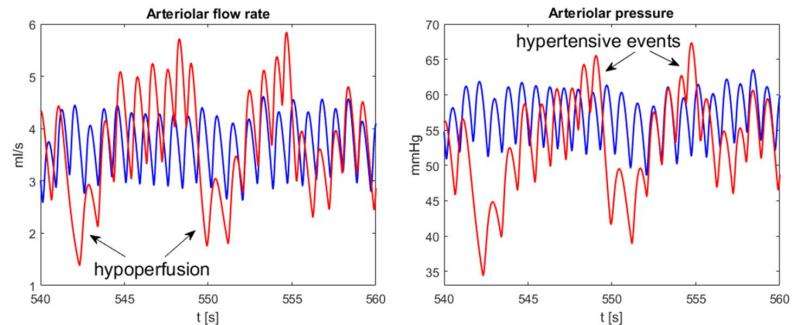Investigating the association between atrial fibrillation and dementia

Atrial fibrillation (AF), the most common cardiac arrhythmia, turns out to be a potential mechanism into the genesis of AF-related cognitive impairment/dementia. The work published by the interdisciplinary group composed by researchers from the Politecnico di Torino (Luca Ridolfi, Department of Environment, Land and Infrastructure Engineering - DIATI, and Stefania Scarsoglio, Department of Mechanical and Aerospace Engineering - DIMEAS) and medical doctors from the Cardiology Division of the "Città della Salute e della Scienza di Torino" (Fiorenzo Gaita, Matteo Anselmino e Andrea Saglietto) relies on a mathematical model developed combining fluid dynamics and cardiology expertise. The present study investigates some mechanisms that associate AF to an increased risk of dementia, by highlighting the potential relations between them.
The socio-economic impact of AF is extremely high, since AF incidence grows with age and currently affects over 30 million people worldwide. This number is expected to double within the next years as a consequence of the increased life expectancy. Understanding the mechanisms between the two pathologies and detecting prioritary AF treatments to minimize neurodegenerative changes could have an enormous impact on the burden of health care costs and quality of life.
The proposed mathematical model is able to computationally achieve the main cerebral hemodynamic parameters in normal rhythm and AF conditions. The irregular and highly variable AF beating promotes the onset of critical events at arteriolar and capillary levels. In particular, over 5000 heartbeats, more than 300 arteriolar hypoperfusions occurred - which may result in an insufficient cerebral oxygenation - and almost 400 hypertensive capillary events were found, which are possible signs of microvascular insults.
These transient periods of excessive pressure or reduced blood flow in the local cerebral circulation demonstrate that in the long-term AF, per se, is a potential mechanism related to the genesis of AF-related cognitive impairment/dementia.
More information: Matteo Anselmino et al. Transient cerebral hypoperfusion and hypertensive events during atrial fibrillation: a plausible mechanism for cognitive impairment, Scientific Reports (2016). DOI: 10.1038/srep28635


















